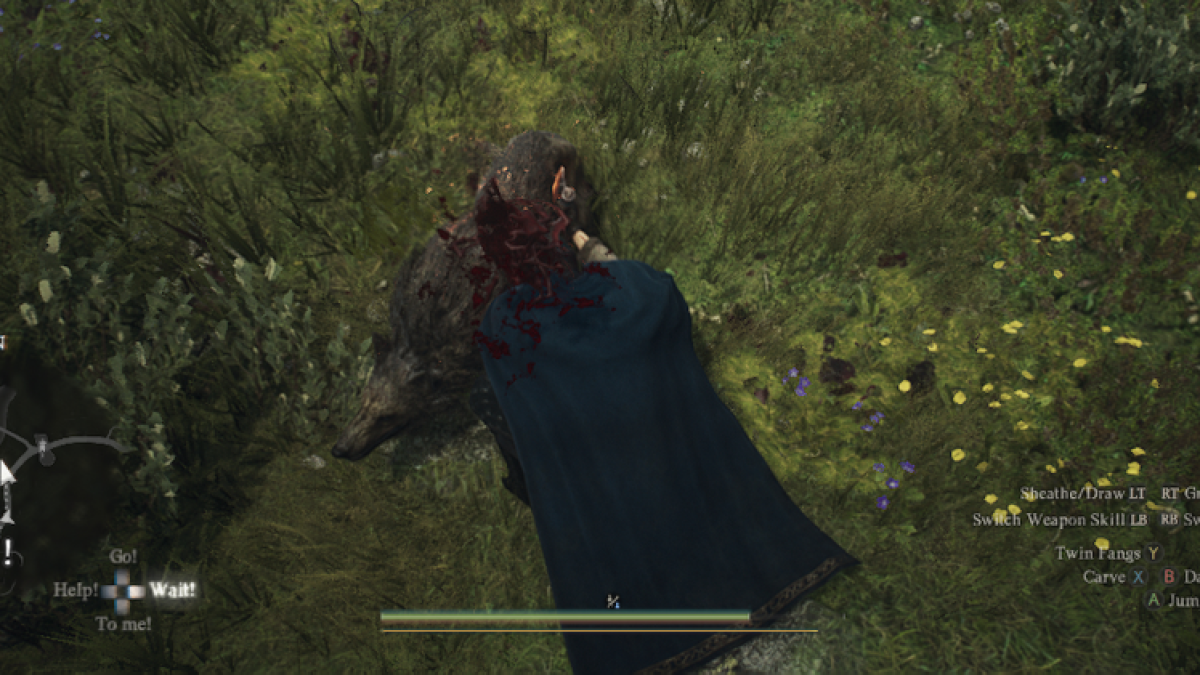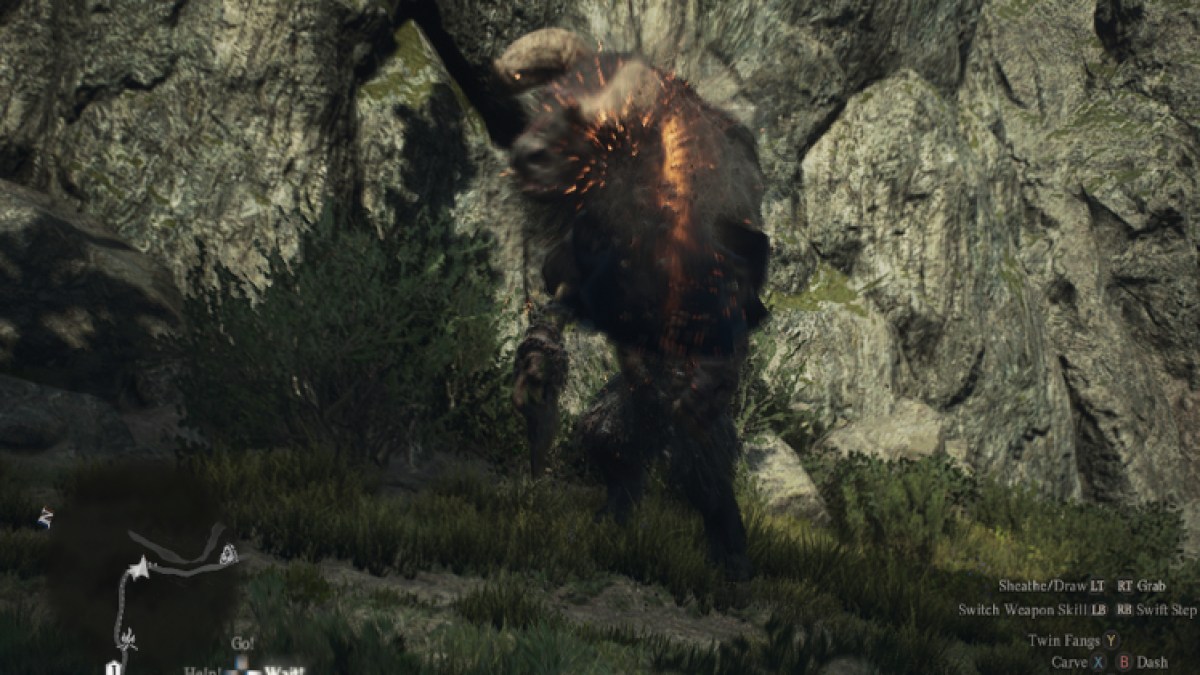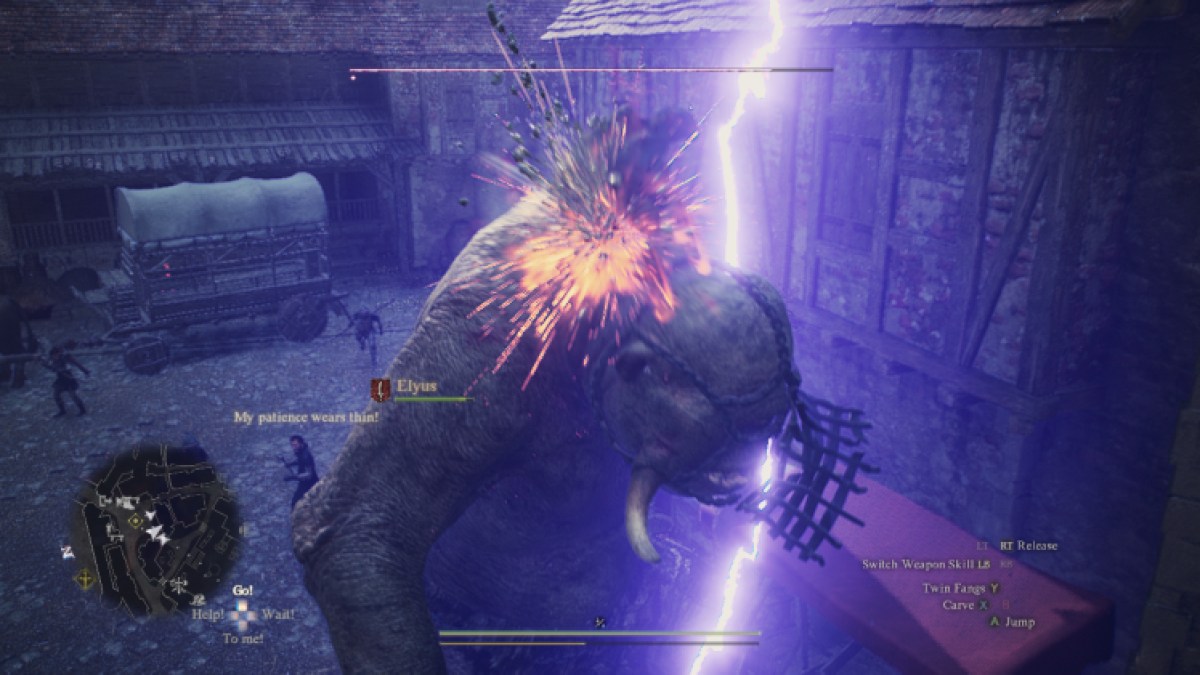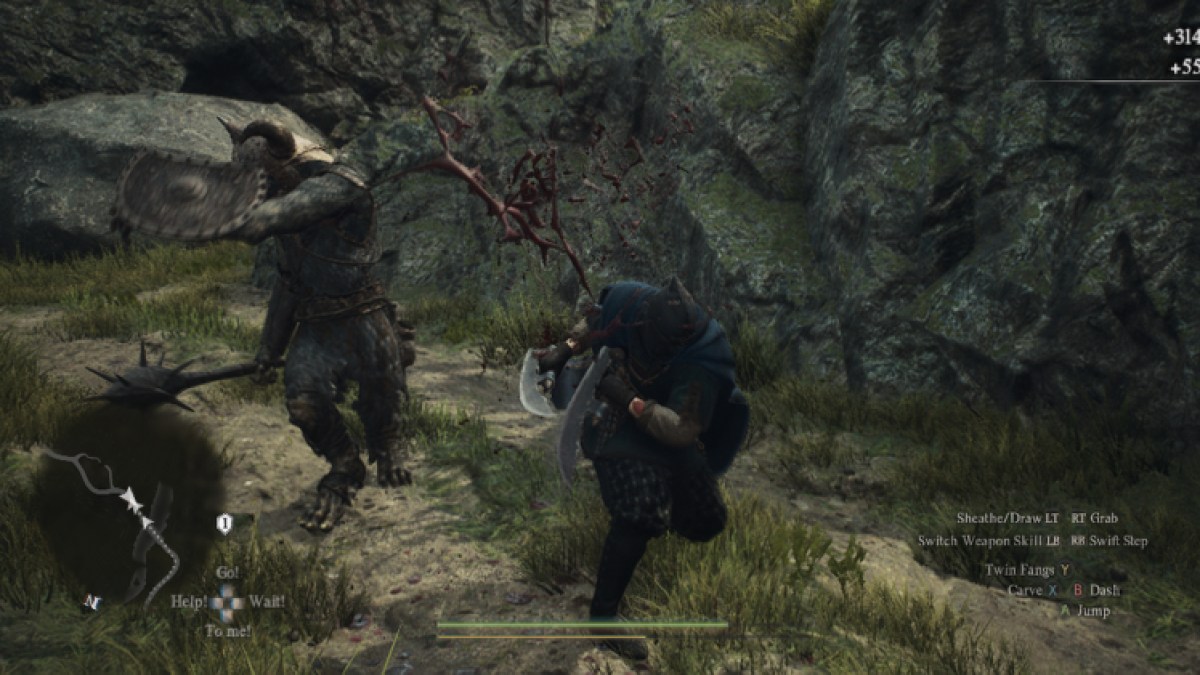Best Thief Skills in Dragon’s Dogma 2
The core of any Vocation build is the Weapon Skills you’re running. I’ll neglect to mention any Core Skills, as there is no choice needed – just grab them all. There are many Weapon Skills for the Thief, however, so choosing the best set is a tricky task. But with my experience, I have nailed down the best handful of skills for you to use.
Implicate
Implicate is an upgraded form of Ensnare. It is unlocked much later, but Ensnare is available early on. You will launch out a grappling rope that snatches onto an enemy and pulls them toward you. You’ll be using this skill quite often as a Thief.
For smaller enemies, this will not only launch them toward you but will make them prone, rendering them easy targets for your Twin Fangs attack to finish them off. Tougher foes may resist being launched toward you, but if you Implicate them a couple more times, they’ll give in. It is also an incredible attack for bringing Harpies out of the sky and interrupting their sleep song.

This makes fights trivial, as you can merely Implicate most enemies before taking them down. Alternatively, you can pick them up and throw them off a cliff. That classic strategy never fails.
For larger enemies, this aids in knocking them off balance and making them fall prone, which is when everyone can deal incredible amounts of damage. After a larger enemy has made an attack, quickly Implicate them to send them topping over.
Skull Splitter

Skull Splitter is an upgraded form of Helm Splitter. It is the most powerful attack a Thief can have. Sure, it may not be objectively as damaging as Gut and Run, but the fact that it can quickly be repeated again and again makes it overpowered very quickly.
When performing Skull Splitter, you will launch into the air and spin with your daggers, effectively making you a saw blade. If you duck under a larger creature and perform this attack, you will deal huge damage as it strikes its head repeatedly again and again.
The moment you land – you can do it again. I have melted through Minotaurs and Cyclopes with this attack. They never stood a chance.
Draw and Quarter

Draw and Quarter is an advanced form of Gut and Run. When mounted on an enemy, travel to a weak point. Performing Gut and Run will deliver a dastardly blow before flinging you off, delivering huge damage.
This is a great finisher as well as a great way to safely launch off a giant creature. Although you must travel to the beast’s weak spot, the blow is worthwhile. I won’t personally be using it as often because I see far more DPS with Skull Splitter, though.
Formless Feint

Formless Feint is a Weapon Skill that you learn from the Thief Maister. You will encounter them during the main questline once you reach the Nameless Village.
Once Formless Feint is active, your character will dodge and evade attacks automatically, which is a huge boon to the lightly armored vocation. It does consume stamina while active, but you can cancel it at any time.
This is incredibly useful, and I’d recommend it for the majority of builds. Personally, however, I find that manually dodging is better so you can use that Weapon Skill slot for an ability that deals damage.
Ignited Blades

The Thief learns Ignited Blades very early on, but it’s so good that it has a rightful place in advanced builds. Fire is a fantastic element to bestow upon foes – even ones who aren’t especially vulnerable to fire. I find that it deals a good deal of extra damage, and a good portion of foes will go up in flames.
This can be substituted for another if you have a spell-caster like a Mage on your team that can buff you with an elemental attack. You simply won’t need to grant yourself fire if you’re already getting elementally buffed by one of your Pawns. But if not, then you can never go wrong with igniting your blades before every encounter.
If you combine this with an Archer Pawn who uses Tarring Arrows, then you can literally melt bosses with ease. Several large monsters in Dragon’s Dogma 2 are exceptionally weak to fire, and while it won’t help you take down drakes and dragons, you can effortlessly fell griffins and ogres with flame.
Best Thief Augments in Dragon’s Dogma 2
The Thief has a lot of Augments, but honestly, they’re not all that great. You will find better Augments from other Vocations, so make sure to level other classes to unlock them. The Thief does get access to a few incredibly useful Augments as it levels up though. Here’s the best Augment setup for maximum damage as a Thief.
| Augment | Vocation | Effect |
|---|---|---|
| Vitality | Warrior | Increases your maximum Health. |
| Endurance | Archer | Increases your maximum Stamina. |
| Gratification | Thief | Slightly restores Health when you deliver a killing blow to a foe. |
| Vigor | Thief | Reduces the Stamina consumed when clinging to or pinning down foes. |
| Mettle | Fighter | Augments your physical Defense. |
| Diligence | Fighter | Hastens recovery when downed or crawling. |
Best Thief Gear in Dragon’s Dogma 2
The Thief is only as good as the gear it brings into battle, however, so you’ll need to know of the best great to have by your side at all times. Thief gear is light and their daggers deal great damage, especially with upgrades, so you can hang onto the same equipment for quite some time and still see success while exploring the wilds.
Best Early Game Thief Gear
- Peltflayers (Vernworth)
- Unseen Shadow (Vernworth)
- Scaled Jacket (Vernworth)
- Thief’s Gaiters (Vernworth)
Best Mid Game Thief Gear
- Divine Razors (Bakbattahl)
- Falconian Beak (Checkpoint Rest Town)
- Wildeagle Padded Armor (Checkpoint Rest Town)
- Mercenary Hosen (Checkpoint Rest Town)
Best Endgame Thief Gear
- Dragon’s Vein (Bay Wayside Shrine)
- Confidant’s Hood (Bakbattahl)
- Enshadowed Battle Garb (Bakbattahl)
- Assassin’s Breeches (Bakbattahl)
You can use your favorite Cloak with any of these gear sets since they’re mostly just cosmetic. Being a Thief gets you access to some of the best fashion in the game, but if you prefer the look of other Vocations, you can create incredibly strong Archer builds or Fighter builds in Dragon’s Dogma 2 as well.
